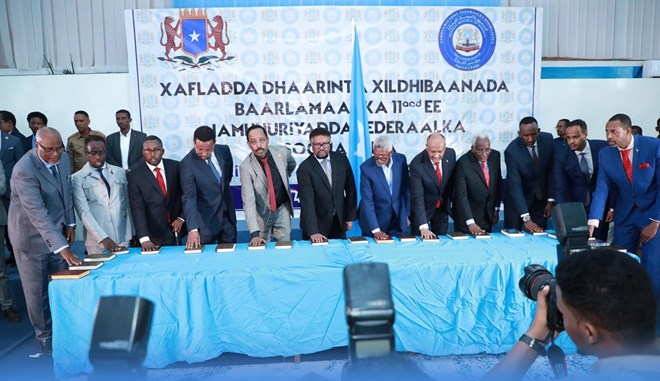Somalia’s newly elected parliament met for the first time on Saturday, bringing the country one step closer to appointing a new president as instability and famine continue to threaten the war-torn Horn of Africa country.
In Somalia, elections follow a convoluted indirect approach in which state legislatures and clan delegates select members of the national parliament, who then elect the president.
After a turbulent vote process marred by deadly violence and a power struggle between the current president and the prime minister, over 300 lawmakers were sworn in on Thursday, more than a year behind schedule.
The United Nations, the African Union mission in Somalia, the European Union, and a number of foreign nations have all praised the decision.
Saturday’s parliamentary session kicked off the process of electing speakers to the lower and higher houses of parliament before they meet to elect a new president.
There is yet to be a date set for the election of the new president.
Before President Mohamed Abdullahi Mohamed’s mandate ended in February 2021, the legislative elections should have been completed.
However, political squabbling stalled the process, and the president’s term expired without a vote.
Farmajo, or Mohamed, attempted to extend his control by decree, but was met with protests and violent opposition in Mogadishu, where various political factions fought in the streets.
Under international criticism, he selected Prime Minister Mohamed Hussein Roble to seek consensus on a path ahead, but the two men hindered progress.
The bitter spat between Roble and Farmajo stoked fears of further instability in the Horn of Africa country, which is battling a decadelong insurgency and the threat of famine.
Some parliamentary seats still remain unfilled but sufficient lawmakers have been sworn in to move the election process forward. So far, 298 legislators have taken the oath of office, from a possible 329 members for both houses.
Somalia has not held a one-person, one-vote election in 50 years.

